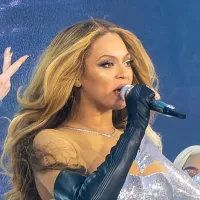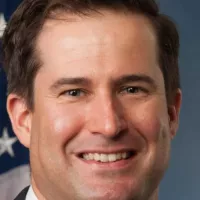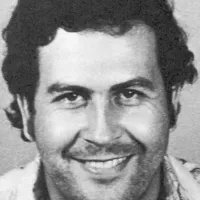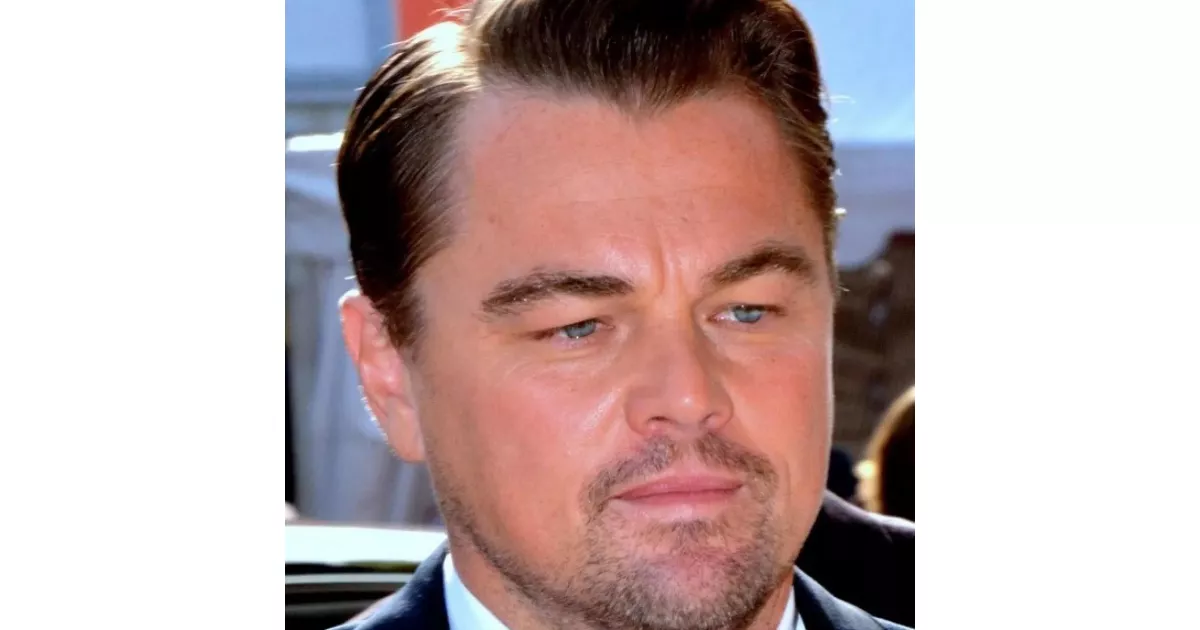Leonardo DiCaprio is a highly acclaimed American actor and film producer recognized for his roles in biographical and period films. He has received many awards, including an Academy Award, a British Academy Film Award, and three Golden Globe Awards. DiCaprio's films have collectively grossed over $7.2 billion globally as of 2019, and he has been consistently ranked among the world's highest-paid actors.
1929: Reference to the 1929 film The Man in the Iron Mask
In 1998, Leonardo DiCaprio starred in The Man in the Iron Mask, with common elements from a 1929 film with Douglas Fairbanks.
1939: Reference to the 1939 film The Man in the Iron Mask
In 1998, Leonardo DiCaprio starred in The Man in the Iron Mask, with common elements from the 1939 film of the same name.
1961: Richard Yates' Novel: Revolutionary Road
Revolutionary Road, starring Leonardo DiCaprio, was an adaptation of the 1961 novel by Richard Yates.
1973: The Right Stuff Book
In 1973, Tom Wolfe wrote the book 'The Right Stuff'. In 2020, Leonardo Dicaprio was an executive producer of the tv series adaptation of the book, titled 'The Right Stuff'.
November 11, 1974: Leonardo DiCaprio's Birth
On November 11, 1974, Leonardo Wilhelm DiCaprio was born. He is an American actor and film producer.
1974: Reference to the film The Parallax View
In 2008, Leonardo Dicaprio considered the film Body of Lies to be a throwback to political features of the 1970s like The Parallax View (1974).
1975: Reference to the film Three Days of the Condor
In 2008, Leonardo Dicaprio considered the film Body of Lies to be a throwback to political features of the 1970s like Three Days of the Condor (1975).
1989: Role in The New Lassie
In 1989, Leonardo DiCaprio played the role of Glen in two episodes of the television show The New Lassie.
1989: Parenthood Film
In 1989, the comedy film Parenthood was released, which later inspired the TV series in which DiCaprio starred.
1990: Roles in The Outsiders and Santa Barbara
In 1990, Leonardo DiCaprio began acting regularly on television, starting with a role in the pilot of The Outsiders and one episode of the soap opera Santa Barbara, in which he played a teenage alcoholic.
1990: Recurring Role in Parenthood
In 1990, Leonardo DiCaprio had a recurring role in the sitcom Parenthood.
1991: Recurring Role in Parenthood
In 1991, Leonardo DiCaprio continued his recurring role in the sitcom Parenthood.
1991: Film Debut and Recurring Role
In 1991, Leonardo DiCaprio made his film debut in Critters 3 and became a recurring cast member on the sitcom Growing Pains, playing Luke Brower.
1992: Role in This Boy's Life
In 1992, Leonardo DiCaprio had a brief role in Poison Ivy and co-starred with Robert De Niro in This Boy's Life, which gained him recognition.
1993: First Major Film Role and Academy Award Nomination
In 1993, Leonardo DiCaprio had his first major film part as Tobias Wolff in This Boy's Life and received critical acclaim and his first Academy Award nomination for playing a developmentally disabled boy in What's Eating Gilbert Grape.
1993: Role in What's Eating Gilbert Grape
In 1993, Leonardo DiCaprio played the developmentally disabled brother in What's Eating Gilbert Grape, earning critical success and nominations for awards.
1995: Roles in Various Films
In 1995, Leonardo DiCaprio starred in The Quick and the Dead, The Basketball Diaries, and Total Eclipse.
1996: International Stardom with Romeo + Juliet
In 1996, Leonardo DiCaprio achieved international stardom with Romeo + Juliet.
1996: Romeo + Juliet and Marvin's Room
In 1996, Leonardo DiCaprio starred in Romeo + Juliet and Marvin's Room, earning a Silver Bear for Best Actor at the Berlin International Film Festival for Romeo + Juliet.
1996: Alex Garland's Novel: The Beach
The movie, The Beach released in 2000, was adapted from Alex Garland's 1996 novel.
1997: Titanic's Release and 'Leo-mania'
In 1997, Leonardo DiCaprio starred in Titanic, which became a massive success and led to intense adoration known as 'Leo-mania'.
1997: Silver Bear for Best Actor
In 1997, Leonardo DiCaprio won a Silver Bear for Best Actor at the Berlin International Film Festival for Romeo + Juliet.
1997: Kate Winslet's Suggestion to work with DiCaprio
In 2008, Kate Winslet suggested that both she and Leonardo work with her on a film adaptation of the 1961 eponymous novel by Richard Yates. She found that the script, by Justin Haythe, had little in common with the 1997 blockbuster Titanic.
1997: International Star Dom with Titanic
Since his international stardom with Titanic in 1997, Leonardo DiCaprio has admitted feeling nervous about starring in big-budget studio films because of their hype and marketing campaigns.
1998: Roles in Celebrity and The Man in the Iron Mask
In 1998, Leonardo DiCaprio played a role in Woody Allen's 'Celebrity' and also played dual roles in 'The Man in the Iron Mask'.
1998: Casting and departure from American Psycho
In 1998, Leonardo DiCaprio was cast in 'American Psycho' but left due to disagreements with Oliver Stone, and he then took the lead role in 'The Beach'.
1998: Criticism of "Pussy Posse" and Parachute Incident
In 1998, Leonardo DiCaprio's group of male friends, dubbed "the Pussy Posse," was criticized in a New York Magazine article. Also around this time, DiCaprio and a friend nearly died when his parachute failed to open during an activity.
1999: Golden Raspberry Award for Worst Screen Couple
In 1999, Leonardo DiCaprio won a Golden Raspberry Award for Worst Screen Couple for his dual roles in 'The Man in the Iron Mask'.
2000: Starred in The Beach
In 2000, Leonardo DiCaprio starred in the movie The Beach. DiCaprio is unafraid of working with established directors on unconventional projects; taking such risks has led him to star in failed films like The Beach.
2000: DiCaprio's statement on Titanic phenomenon
In 2000, Leonardo DiCaprio stated he had no connection with his public image during the Titanic phenomenon and did not expect to reach that level of popularity again, nor would he try to.
2000: Release of American Psycho
Leonardo DiCaprio was cast to star in American Psycho (2000).
2001: Premiere of Don's Plum at Berlin International Film Festival
In 2001, Don's Plum, a film Leonardo DiCaprio acted in, premiered at the Berlin International Film Festival, but its release remained obscure in the US and Canada due to legal challenges.
2002: Roles in Catch Me If You Can and Gangs of New York
In 2002, Leonardo DiCaprio sought roles in other genres to shed his image as a romantic hero, including the crime dramas Catch Me If You Can and Gangs of New York. Gangs of New York marked the first of his many collaborations with director Martin Scorsese.
2002: Starring in Gangs of New York
In 2002, Leonardo DiCaprio starred in Martin Scorsese's 'Gangs of New York', a historical drama set in the mid-19th century.
2002: Rejection of Star Wars role and starring in Catch Me If You Can
In 2002, Leonardo DiCaprio turned down the role of Anakin Skywalker in Star Wars: Episode II and starred in the biopic Catch Me If You Can.
2003: Reference to the novel Shutter Island
In 2010, Leonardo Dicaprio starred in the movie Shutter Island, which was based on the 2003 novel of the same name by Dennis Lehane.
2004: Acclaim for The Aviator
In 2004, Leonardo DiCaprio continued to gain acclaim for his performance in the biopic The Aviator.
2004: Foundation of Appian Way Productions and involvement in The Aviator and The Assassination of Richard Nixon
In 2004, Leonardo DiCaprio founded Appian Way Productions and was involved in the production of 'The Assassination of Richard Nixon' and 'The Aviator'.
2005: Commander of the Order of Arts and Letters
In 2005, Leonardo DiCaprio was named a Commander of the Order of Arts and Letters for his contributions to the arts.
2006: Roles in Blood Diamond and The Departed
In 2006, Leonardo DiCaprio gained acclaim for his performances in the political thriller Blood Diamond and the crime drama The Departed.
2006: Starring in The Departed and Blood Diamond
In 2006, Leonardo DiCaprio starred in the crime film 'The Departed' and the political war thriller 'Blood Diamond'.
2007: Interest in Shutter Island
In 2007, Leonardo DiCaprio and Martin Scorsese became interested in the project of Shutter Island.
2007: Production of Gardener of Eden and The 11th Hour
In 2007, Leonardo DiCaprio produced the comedy drama 'Gardener of Eden' and produced, co-wrote, and narrated the documentary 'The 11th Hour'.
2008: Production of Greensburg
From 2008, Leonardo DiCaprio's production company made the documentary series Greensburg.
2008: Farragut North Play
In 2008, Beau Willimon wrote the play 'Farragut North', which later became the basis for the film 'The Ides of March', produced by Leonardo DiCaprio's Appian Way in 2011.
2008: Starring in Revolutionary Road and producing Orphan
In 2008, Leonardo DiCaprio starred in 'Revolutionary Road' with Kate Winslet and produced the psychological horror thriller film 'Orphan'.
2008: Role in Revolutionary Road
In 2008, Leonardo DiCaprio starred in the romantic drama Revolutionary Road.
2008: Production of Greensburg and Starring in Body of Lies
In 2008, Leonardo DiCaprio's Appian Way produced 'Greensburg' and DiCaprio starred in 'Body of Lies'.
2008: Labeled as "Hollywood's most iconic screen couple"
In 2008, a writer for Vanity Fair described Leonardo DiCaprio and Kate Winslet as "Hollywood's most iconic screen couple" since Humphrey Bogart and Ingrid Bergman.
2009: Production of the movie Orphan
Leonardo DiCaprio produced the psychological horror thriller film Orphan (2009), starring Vera Farmiga, Peter Sarsgaard and Isabelle Fuhrman.
2010: Starring in Inception
In 2010, Leonardo DiCaprio starred in Christopher Nolan's science-fiction film 'Inception', earning his highest payday of $50 million from the film.
2010: Starring Roles in Inception and Shutter Island
In 2010, Leonardo DiCaprio starred in the thrillers Inception and Shutter Island, both successful projects with high-profile directors.
2010: Production of Greensburg
In 2010, Leonardo DiCaprio's production company was still producing the documentary series Greensburg.
2010: End of Greensburg series
Planet Green's Greensburg series, produced by Leonardo DiCaprio's Appian Way Productions, ended in 2010 after running for three seasons.
2011: Starred in J. Edgar and produced Red Riding Hood and The Ides of March
In 2011, Leonardo DiCaprio starred as J. Edgar Hoover in the biopic J. Edgar and produced the films Red Riding Hood and The Ides of March. J. Edgar focused on Hoover's career as an FBI director. Red Riding Hood had moderate box-office returns, while The Ides of March was an adaptation of Beau Willimon's play.
2012: Starred in Django Unchained
In 2012, Leonardo DiCaprio starred as Calvin Candie in Quentin Tarantino's Django Unchained. DiCaprio initially felt uncomfortable with the film's portrayal of racism, but was convinced to proceed. During filming, he cut his hand on glass but continued, and the take was used in the final product. His performance earned him a Golden Globe nomination.
January 2013: Announced Break from Acting and Starred in The Great Gatsby
In January 2013, Leonardo DiCaprio announced he would take a break from acting to focus on environmental work. Also in 2013, he starred as Jay Gatsby in The Great Gatsby, which received mixed reviews but earned DiCaprio an AACTA Award. He also produced Runner Runner, Out of the Furnace, and The Wolf of Wall Street.
2013: Received the National Board of Review (Spotlight Award)
In 2013, Leonardo DiCaprio and Martin Scorsese earned the National Board of Review (Spotlight Award) for their collaborations. It was considered a career-defining moment for both of them.
2013: Roles in The Great Gatsby and The Wolf of Wall Street
In 2013, Leonardo DiCaprio starred in the romantic drama The Great Gatsby and the biopic The Wolf of Wall Street.
April 2014: Virunga Premiered at Tribeca Film Festival
In April 2014, the documentary film Virunga, for which Leonardo DiCaprio was an executive producer, premiered at the Tribeca Film Festival. The film focuses on efforts to protect mountain gorillas.
2015: Starred in and Produced The Revenant
In 2015, Leonardo DiCaprio starred in and produced The Revenant, a survival drama directed by Alejandro G. Iñárritu. His role was physically demanding, requiring him to eat raw bison liver and sleep in animal carcasses. He also learned to shoot a musket, build a fire, speak two Native American languages and apply ancient healing techniques. His performance earned him numerous awards including an Academy Award.
2015: Nominated for Primetime Emmy Award for Virunga
In 2015, Leonardo DiCaprio was nominated for the Primetime Emmy Award for Outstanding Documentary or Nonfiction Special for his work as an executive producer on Virunga.
2015: Academy Award for The Revenant
In 2015, Leonardo DiCaprio won the Academy Award for Best Actor for his role in the survival drama The Revenant.
2015: Rolling Stone article calls Titanic DiCaprio's best role
In his 2015 Rolling Stone article, Ebiri called DiCaprio's role in Titanic his best, highlighting the genuine emotion DiCaprio and Winslet infused into their performances.
2016: Most Influential People
In 2016, Leonardo DiCaprio appeared in Time magazine's 100 most influential people in the world.
2016: Produced Documentaries and Live by Night
In 2016, Leonardo DiCaprio executive produced The Ivory Game and Catching the Sun. He also produced, hosted, and narrated the documentary Before the Flood about climate change. Additionally, he produced the crime drama Live by Night, which was unsuccessful.
2017: Vox contributor Alissa Wilkinson on DiCaprio's performance in Titanic
In 2017, Vox contributor Alissa Wilkinson noted DiCaprio's "boyish charm" and found his performance in Titanic "natural and unaffected".
2018: Produced Delirium and Robin Hood
In 2018, Leonardo DiCaprio produced the psychological horror film Delirium and the action-adventure film Robin Hood. Robin Hood was a commercial failure.
2018: Entertainment Weekly critics on Catch Me If You Can
In 2018, two Entertainment Weekly critics called Catch Me If You Can DiCaprio's best role.
2019: Role in Once Upon a Time in Hollywood
In 2019, Leonardo DiCaprio starred in the comedy-drama Once Upon a Time in Hollywood.
2019: Box Office Success
In 2019, Leonardo DiCaprio's films had grossed over $7.2 billion worldwide, and he had been placed eight times in annual rankings of the world's highest-paid actors.
2019: Returned to Acting in Once Upon a Time in Hollywood
In 2019, after a four-year break, Leonardo DiCaprio returned to acting in Quentin Tarantino's Once Upon a Time in Hollywood. He played Rick Dalton, an aging television actor. To help with financing, DiCaprio and Brad Pitt each took a pay cut. His performance was praised and earned him several award nominations.
2020: Executive Producer for The Right Stuff and Appearance in The Last Dance
In 2020, Leonardo DiCaprio was an executive producer for The Right Stuff, a television series adaptation. He also briefly appeared in the finale of the miniseries The Last Dance.
2021: Starred in Don't Look Up
In 2021, Leonardo DiCaprio starred in Adam McKay's satirical comedy Don't Look Up, playing an astronomer trying to warn humanity about a comet. He saw the film as an analogy for the world's indifference to the climate crisis. His performance earned him award nominations.
2022: One of the Greatest Actors
In 2022, Leonardo DiCaprio was voted one of the 50 greatest actors of all time in a readers' poll by Empire magazine.
2022: Voted One of the Greatest Actors of All Time
In 2022, Leonardo DiCaprio was voted one of the 50 greatest actors of all time in an Empire readers' poll, highlighting his dedication to his roles.
2023: Starred in Killers of the Flower Moon
In 2023, Leonardo DiCaprio starred in Martin Scorsese's crime drama Killers of the Flower Moon, based on the book by David Grann. He insisted on playing the morally complex role of Ernest Burkhart. His performance earned him another Golden Globe nomination. He also starred in Paul Thomas Anderson's film One Battle After Another.
2025: Role in One Battle After Another
In 2025, Leonardo DiCaprio is scheduled to star in the crime drama One Battle After Another.
Mentioned in this timeline

Basketball is a team sport played on a rectangular court...

Donald John Trump is an American politician media personality and...

Robyn Rihanna Fenty is a highly successful Barbadian singer actress...
Ukraine is a large country in Eastern Europe second in...

Bill Clinton the nd U S President - served as...

Hillary Diane Rodham Clinton is an American politician lawyer and...
Trending
2 months ago StubHub Holdings Faces Investigation for Potential Securities Fraud; Law Firms Alert Investors.

USA Basketball USAB is the governing body for basketball in the United States and represents the country in FIBA It...

3 months ago Beyoncé and Jay-Z Spotted in Qatar: Headscarf Sparks Debate.

3 months ago Seth Moulton Challenges Ed Markey for Massachusetts Senate Seat in Generational Fight
Darius Slayton is a professional American football wide receiver currently playing for the New York Giants in the NFL He...

4 months ago Virginia Vallejo, Pablo Escobar's ex, reveals health struggle: Suffered a brutal stroke.
Popular

Thomas Douglas Homan is an American law enforcement officer who...

Martin Luther King Jr was a pivotal leader in the...

XXXTentacion born Jahseh Dwayne Ricardo Onfroy was a controversial yet...

Instagram is a photo and video-sharing social networking service owned...

KFC or Kentucky Fried Chicken is an American fast-food chain...

Jupiter is the fifth and largest planet from the Sun...




